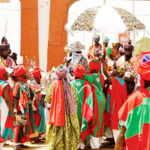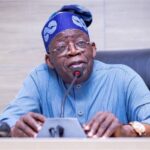Former President, Olusegun Obasanjo has urged older politicians to step down for the younger generation, stressing that “something is wrong” if the people of his generation are still contesting for public offices in Nigeria.
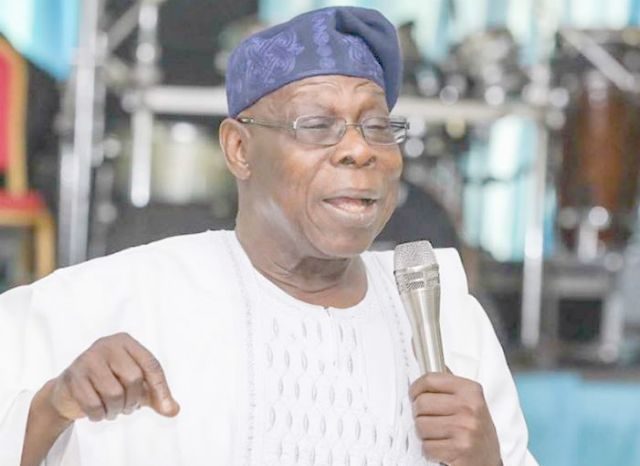
Obasanjo Says His Generation Should Step Down
The ex-president made the call on Monday at the 2022 Murtala Muhammed Foundation (MMF) annual lecture which had the theme, ‘Beyond Boko Haram: Addressing Insurgency, Banditry and Kidnapping across Nigeria’.
He was responding to a comment by Ekiti State Governor, Kayode Fayemi, who said that he was in primary school when the late Murtala Mohammed directed the affairs of the country.
Speaking on the influence of politicians, Obasanjo said rather than compete for positions, older politicians should focus on sharing their wealth of experience with the younger generation.
He said, “Governor Kayode Fayemi of Ekiti state, you talked about being in secondary school when Murtala/Obasanjo were in power.
“If Murtala/Obasanjo and people of their age still have to compete with you as governor, then something is wrong with the Murtala-Obasanjo group.
“They should be sitting aside and sharing their knowledge and experience with you and you should be giving it to those coming after you.
“That way, we can make sure that the experiences we have accumulated, we are passing it down to those of you coming behind, rather than to start competing with you.
“This is necessary to make sure you have access to what you can use to make Nigeria better than you found it.”
Obasanjo also urged Nigerians to be committed to developing the country, adding that “for me, we can’t go anywhere until we take nation building seriously”.
Obasanjo Speaks On Insecurity In Nigeria
The ex-president expressed concern over the number of out-of-school children, adding that Nigeria needs to address the challenges facing the education sector.
Obasanjo blamed insecurity in the country on access to weapons after the Nigerian civil war, noting that Nigeria must do something about out-of-school children which is currently said to be around 15 million.
Obasanjo said, “The insecurity in the country was caused by the ease of access to weapons after the civil war, and since then, we have been unable to address the issue; it keeps getting worse.
“In 2011 when Boko Haram was just showing its ugly head, I went to Maiduguri to try and find out a little bit more about Boko Haram and to also find out what their objective was, apart from being interested in Sharia.
“They also complained that their followers had no jobs and stated their efforts to get something legitimate to help their members. In the process, the government started chasing them and gunning them down.
“What I feared at that time seems to have been happening. At that time, Boko Haram had not many external connections; the ones they had were Nigerians who had resources abroad, who were helping them.
“My fear then was whether we would be able to keep them away from Al-Qaeda and other international terrorist organisations. We seem not to have been able to do that which has made the situation worse.”
He advised that more attention should be paid to out-of -school children in the country as they constituted more threat to the country in the future.
Obasanjo said, “The Nigerian population today is about 215 million and 15 million children are not in school; it doesn’t matter how we deal with insecurity, either by stick or carrot approach. Those children are the potential Boko Haram 10 years from now.
“If we don’t do anything about those children, we are already nurturing the Boko Haram of tomorrow. We need to look back and reinvent. When you look at some of the things we are doing, then you wonder why we are not succeeding. This is because we are doing the same thing all the time.
“Things that we did the last time that didn’t pay us are the same we are repeating. The idea of treating symptoms rather than the disease will not get us anywhere.
“The disease of Boko Haram and banditry are those things that people expect; they want a good life; they want to get a job; they want education; and they must be given for as long as they are denied these, they will be right to make a demand on society, which it must give to them willingly or unwillingly.”
KanyiDaily recalls that Olusegun Obasanjo had said Nigeria “needs more rebels” to speak the truth to power without minding the consequences.


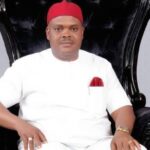


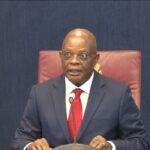
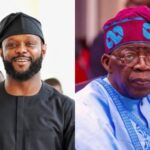
![Nons Miraj Surprises Egungun Of Lagos' Baby Boy With $10,000 [Video] 11 Nons Miraj Surprises Egungun Of Lagos' Baby Boy With $10,000 [Video]](https://media.kanyidaily.com/2025/03/28164609/Nons-Miraj-surprises-Egungun-of-Lagos-150x150.webp)
